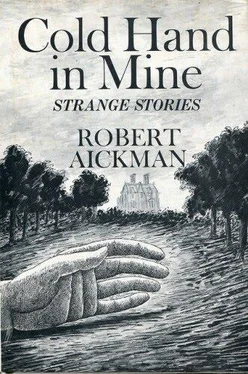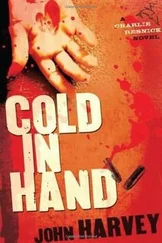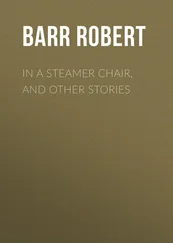"My home is not in London," I said. "I don't know many people here yet."
Mr Millar seemed uninterested, and one could hardly blame him.
"I wonder how long Lloyd George will last?"
This was, almost aggressively, "making conversation. Plainly I had failed badly in having no one with me. But at last the glass of sherry had reached me. As I was still not offered a seat, I sat down on one for myself. Immediately Mr Millar sat down also. I could think of nothing intelligent to say about Lloyd George, but I suppose I said something.
"Santé!" said Mr Millar, still not looking at me — or at anything else, as it seemed to me. He was like a man with two glass eyes. I took a strong pull at the sherry glass, fortunately quite large.
"Thundery weather," said Mr Millar. "How long before it breaks?"
"Not just yet I should say."
"You're a countryman?"
"More an outer suburban, I'm afraid. At least it's become that."
"Rather good sherry, don't you think?"
"Frightfully good."
"Do you take the Post or the Telegraph ?"
"I take The Times ."
"Bit young for that, aren't you?"
"I grew up with it."
"Really?"
"Never another paper in our house."
"Good Lord! You'd better write and tell them so." Mr Millar laughed metallically.
It seemed that there was positively nothing to me without that missing person "with me". Really we could hardly continue.
"Let me fill you up." He said it as perfunctorily as he had said everything else; but I accepted with some relief. I much needed daredevilry. I could hardly escape for a few more minutes.
I could think of nothing to say which would continue the conversation. I doubted very much whether anything I could possibly say, would continue it. The central fact about Mr Millar was that his thoughts were elsewhere: were, I felt all the time I was with him, elsewhere permanently. His glass eyes and wandering hands spoke truth of a kind, where his lips spoke only cotton wool.
"Fancy anything for the Cambridgeshire?"
I could but shake my head. From one point of view, I could see that Mr Millar might hope for more lively company.
"What about the tennis this summer? Good to have it back, don't you think?"
"Good to have a lot of things back."
"But there's a lot that won't come back so soon."
"Yes," I said. "That's true."
"I shouldn't wonder if there's never proper polo to watch again. Not polo worth watching."
He was sitting sideways at his desk, showing me his left profile. I have said little — indeed, as I see, virtually nothing — about Mr Millar's appearance. Perhaps it is because there is so little to say. As far as I recall, he was a slender, dark man of medium height. He was cleanshaven, always a trifle black in the jowl — but only a trifle. I suppose he was 40; maybe a well-preserved 50. He had a wad of blackish hair, carefully trimmed round the edges, so that it seemed to fit his head like a cap, and always honeyed with brilliantine. He was at all times well dressed; at all times noticeably so, but not in a pejorative sense, except, conceivably, for such details as the suède shoes I have mentioned (he was wearing a townsman's country suit with them, it being the eve of the weekend). His counterparts are to be seen everywhere, at all times. .
I think I might even say that Mr Millar belonged to a type whose members tend to make one feel that their thoughts are elsewhere. But few of them carry this impression as far as Mr Millar carried it. Even at that first (but almost only) meeting, I sensed that Mr Millar's thoughts were as far away as those of Boris Godunov, who had, some said, made away with the rightful heir; or even of our own misled Macbeth.
"While you're here," said Mr Millar, "there's something I'd like to explain. It seems a good opportunity."
"Oh yes," I said, slanting my sherry glass, now once more less than half full.
"We're very busy just now. I often have to stay on. So don't be surprised if you hear sounds."
"I'm glad you've mentioned it."
"I didn't want you to think we'd got the burglars in." Mr Millar laughed his metallic laugh. "I supposed at first I could come to an arrangement with the girl in the basement. Rather a sweet person, don't you think?"
"From what I've seen of her," I said.
"But of course she has her family to think about and all that sort of thing. So I've decided to shake down up here. After all, why not?" Mr Millar's colourless eyes roamed uneasily round the room, almost, it seemed, as if he thought his question might be answered. His gaze then proceeded to traverse the ceiling. To me his news was so unwelcome that again I could find nothing whatever to say.
"You're one of these famous authors, I'm told?"
"I aim to be," I replied.
"I once thought I'd write a book myself."
"Had you a subject in mind?" I enquired without a trace of sarcasm.
"I'm sure I had," said Mr Millar. "God knows what it was!" He laughed again. "Let me fill you up."
"I really ought to be on my way."
"Just one more before you go," said Mr Millar, making a discernibly minimal effort to retain me. He was waving the bottle about nervously, but managed to concentrate enough to refill my glass.
"Yes, a sweet little person that!"
I smiled as man to man; or rather that was how it would have been if both of us had been men, instead of one of us an adolescent and the other a simulacrum.
"Man was not meant to live alone. Don't you agree?"
"There are arguments on both sides," I replied.
"You wait till you're older," said Mr Millar, and laughed his laugh. "You can't talk till then."
"I live a long way away, you know," he continued. "I couldn't possibly go home every night when we're so infernally busy. Couldn't stand the fag of it."
"I suppose it's a good thing accountancy's so prosperous." But I was quite surprised that Mr Millar claimed to have a "home", however distant.
"Yes, I suppose it is if you care to see it like that."
I rose. "Anyway, I must leave you to it."
"Glad you were able to come."
He saw me only to the door of his sanctum; then turned back, his mind concentrated upon someone or something else, one shrank from thinking what.
From then on, as I might have known, Mr Millar seemed to remain in his office almost every night. The rest of them disappeared at more or less the usual hour, but Mr Millar would continue pottering up and down stairs, locking and unlocking doors, carting small objects from place to place, making and answering late telephone calls, sometimes talking to himself as he roamed. When his shuffling about stopped me working (which, I have to acknowledge, was only occasionally), I would quietly open my door and shamelessly eavesdrop down my dark stair. But Mr Millar's activities seemed so trivial and futile as to be hardly worth spying on for long, and the chatter he addressed to himself (quite loudly and clearly) was not so much obsessive as escapist. The burden of his thoughts had long ago driven him out of his own personality, even when he was by himself. He had become a walking shell from which the babble of the world re-echoed.
Did he ever really sleep? And, if so, on what? His sanctum had offered nothing but the floor when I had been in it; but, as I have said, I never entered it again. I suppose a sofa could have been introduced without my meeting it coming upstairs or hearing it bruise the new paintwork. I did not know whether Mr Millar locked his door, the outer one or the inner one, when finally he ceased to travail on the staircase and from room to room. Assuredly, I never heard him snore through the ceiling; although his bleak sanctum was immediately below my bedroom. But snoring is always absurd, and absurd was never quite the word for Mr Millar.
Читать дальше












